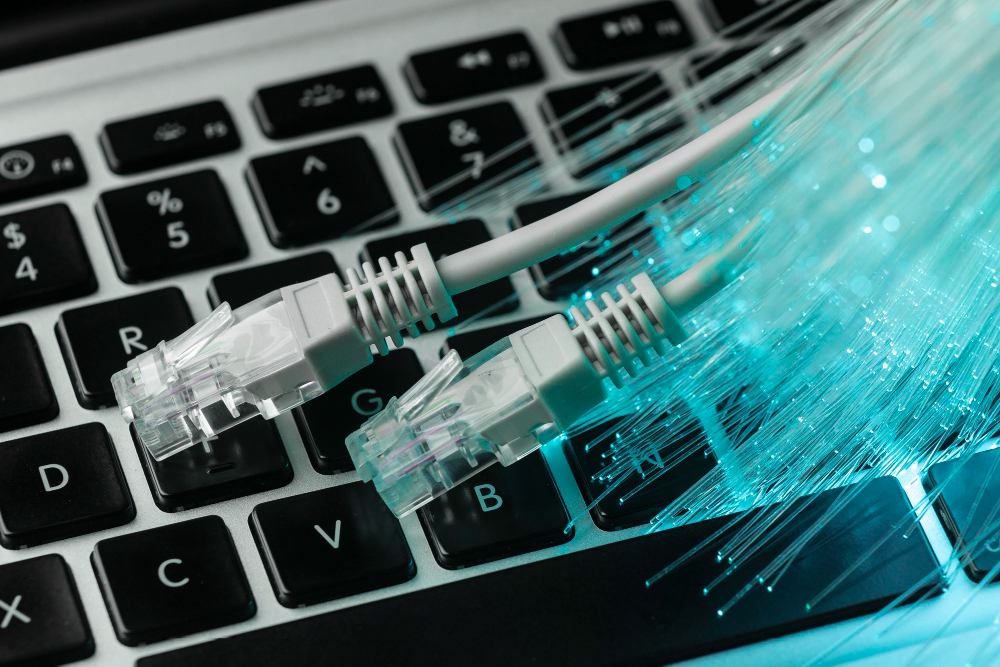In today’s hyper-connected world, internet connectivity is no longer a luxury but a necessity. From working remotely to streaming in 4K, video conferencing, gaming, or simply browsing, the demand for stable, high-speed internet is at an all-time high. Among various options, fiber-optic internet stands out for its speed, reliability, and scalability. Choosing the best fiber internet can dramatically transform your online experience.
This article explores the key advantages of fiber internet, how to choose the best provider, and a comparison of top services available today.
What is Fiber Internet?
Fiber-optic internet uses ultra-thin glass or plastic cables to transmit data as light signals. This advanced technology offers significantly faster speeds and more reliable connectivity compared to traditional broadband options like DSL or cable.
Benefits of Fiber Internet
- Blazing Fast Speeds: Fiber internet delivers speeds up to 1 Gbps or more, far surpassing cable and DSL.
- Symmetrical Upload and Download: Unlike cable, fiber provides equal upload and download speeds, ideal for video calls and cloud computing.
- Unparalleled Reliability: Fiber is less prone to interference, ensuring consistent performance even during peak hours.
- Future-Proof Technology: With growing digital demands, fiber’s scalability ensures it remains relevant for years to come.
How to Choose the Best Fiber Internet Provider
When selecting the best fiber internet provider, consider the following factors:
1. Speed and Bandwidth
Assess your household’s internet usage. Gamers, streamers, and multi-device households need high-speed options, typically 500 Mbps to 1 Gbps.
2. Availability
Fiber internet is expanding rapidly but may not yet be available in all areas. Use tools like availability maps on provider websites to check service in your location.
3. Cost and Plans
Compare pricing tiers and packages. While fiber is generally more expensive than cable, the performance benefits often justify the investment.
4. Customer Support
A provider’s responsiveness to issues or queries can make a big difference. Research customer reviews and ratings.
5. Additional Perks
Look for added benefits like free installation, unlimited data, or bundled services (TV, phone, etc.).
Top Providers Offering the Best Fiber Internet
Here’s a closer look at some of the leading providers in the fiber internet market.
1. Google Fiber
- Speeds: Up to 2 Gbps
- Coverage: Select US cities
- Highlights: Straightforward pricing, no data caps, and excellent customer satisfaction ratings.
2. AT&T Fiber
- Speeds: Up to 5 Gbps
- Coverage: Widely available across the US
- Highlights: Flexible plans, reliable connectivity, and solid customer support.
3. Verizon Fios
- Speeds: Up to 1 Gbps
- Coverage: Primarily in the Northeastern US
- Highlights: Symmetrical speeds, unlimited data, and impressive bundling options.
4. CenturyLink Fiber
- Speeds: Up to 940 Mbps
- Coverage: Select urban and suburban areas
- Highlights: No contracts, Price for Life guarantee on some plans.
5. Xfinity Fiber
- Speeds: Up to 3 Gbps
- Coverage: Nationwide availability
- Highlights: Bundled packages, robust home network solutions.
Why the Best Fiber Internet is Worth It
If you’re wondering whether upgrading to fiber internet is the right move, here are some compelling reasons:
1. Improved Work-from-Home Experience
With remote work becoming the norm, reliable connectivity ensures seamless video conferencing, file sharing, and VPN usage.
2. Next-Level Entertainment
Fiber’s ultra-fast speeds mean you can stream 4K content, game online, or download large files with zero buffering.
3. Supporting Smart Homes
Modern smart homes depend on robust internet to power IoT devices like security cameras, thermostats, and voice assistants. Fiber internet ensures these systems work flawlessly.
4. Sustainability
Fiber technology is energy-efficient and less invasive to install compared to traditional networks, making it a greener choice.
Future of Fiber Internet
The demand for faster internet shows no signs of slowing down. Emerging technologies such as augmented reality (AR), virtual reality (VR), and 8K streaming will require even greater bandwidth. Fiber’s scalability ensures it will continue to deliver cutting-edge performance.
Governments and private companies worldwide are investing in expanding fiber-optic networks to bridge the digital divide, bringing the best fiber internet to underserved areas.
FAQs About Fiber Internet
Q1: Is Fiber Internet Expensive?
While the upfront cost may be higher than cable or DSL, fiber internet offers better value through faster speeds, reliability, and long-term scalability.
Q2: How Do I Know If Fiber Internet is Available in My Area?
Visit provider websites or use broadband availability tools to check if fiber service is offered in your location.
Q3: Can Fiber Internet Support Multiple Devices Simultaneously?
Yes, fiber internet is designed to handle heavy traffic and multiple devices without compromising speed or quality.
Q4: How is Fiber Different From Cable?
Cable uses coaxial lines, which can degrade over long distances and during peak usage. Fiber relies on light signals, delivering consistent high-speed performance.
Conclusion
As the digital landscape evolves, having a fast and reliable internet connection is non-negotiable. Whether you’re a casual user, an avid gamer, or managing a smart home, the best fiber internet will enhance your online experience.
From industry leaders like Google Fiber to widely available options like AT&T Fiber and Verizon Fios, there’s a solution for everyone. Take the time to assess your needs, compare providers, and enjoy the benefits of ultra-fast, reliable connectivity.
